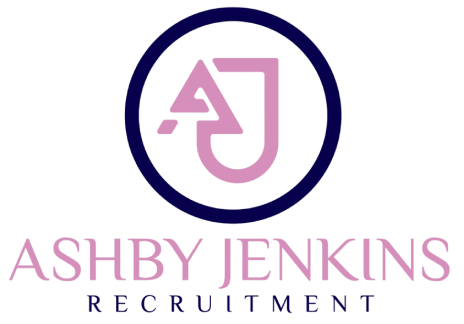How to get an internal promotion
We are passionate about helping people progress their career, whether that’s through providing recruitment advice, facilitating introductions to informal mentors or helping people find opportunities outside their current organisation. Despite my profession thriving from the pace that fundraisers seek to change roles, I am really passionate about helping candidates and organisations progress their careers and their staff internally.
Organisations with internal progression history have a better reputation in the market, but it’s usually more difficult to get an internal promotion than a new role externally. On the plus side; if they know your strengths and weaknesses and still choose to promote you it says a lot about your abilities.
How Emily Roff climbed the ladder
I wanted to speak to someone from the sector who has experience of going through the internal promotion process and coming out on top – Emily Roff was the first person to spring to mind. Emily started at Children with Cancer UK as a temporary Running Events Administrator. She was only ever meant to be there for 3-4 weeks but 7 years on Emily is now the Head of Fundraising, leading a team of 30 fundraisers to deliver an income of £21m. I wanted to share Emily’s experience and advice with all of you out there who have ambitions of leading teams.
After the initial 4 weeks of temping in the running events team, Emily’s contract was extended to 6 months, as she had picked things up quickly and had gone above and beyond her remit. During those 6 months she worked hard and was persistent in asking to be made permanent, while demonstrating the value she was adding along the way. This persistence paid off and at the end of the contract they made her permanent and gave her the DIY running events portfolio to oversee.
She asked for more responsibility and was handed the DIY fundraising portfolio – which was a small area for the charity at the time – and was determined to grow this and change how it was done. Emily developed the supporter journey, adding in more personalised touch points and mailings. Within a year the income had grown significantly from £99,000 to £135,000. She also took control of the event social media plan which helped create even better engagement for supporters.
From here she approached her manager about getting a promotion to recognise her work and give her access to a larger portfolio of events which she was successful in securing. She also started supporting the junior members of the team, mentoring people and putting herself forward for projects outside of her day job to add more and more value to her organisation.
At this point her manager announced a pregnancy and an opportunity to step up arose. The Head of team approached Emily directly, impressed with the growth of income and supporter engagement she had contributed to and offered her the promotion. Then came the challenge of managing people who had previously been her peers. Emily didn’t feel like a good manager to start with, so she sought out advice, was honest with her team and played to her strengths of having experience of being in their shoes. Alongside this she asked for formal training and sought out other fundraisers in the sector to learn from.
The organisation then decided to merge the sporting events and challenge events teams and an opportunity to lead them was advertised. Emily expressed her interest, gathered her figures and accomplishments, interviewed and secured the role. One of the greatest successes turned out to be her management of the London Marathon which at that time was raising £2.4m. After reviewing their offering and making changes the income started to rise again, and was by 2018 generating an incredible £3.1m.
Following a restructure Emily took onboard another income stream, community fundraising, and negotiated a job title change to reflect the amount of income she was responsible for. This income stream hadn’t been structured and were more reactive in their fundraising approach. They set up the database to mirror the way event participants were coded and created a tiered supporter journey based on value.
Emily also spotted an opportunity to build a team of regionally based fundraisers. She trialled this idea for 6 months and saw the income grow, after which she put in a business case to expand the team which was approved. When she took over the team, they were raising £721,000 from regional and this now stands at £1.18m. Since then she has been promoted to Head of Fundraising, responsible for £21m amount of income which is a fantastic achievement.
Emily’s 7 tips for success
- Use your appraisals well, always take in figures, any non financial successes and your goals and discuss them with your manager, this is your big opportunity to promote yourself. It’s always worth asking for a pay rise or promotion in these meetings but be prepared to demonstrate why you deserve one.
- Take charge of your own development, seek out training courses and projects to involve yourself with. Don’t just wait around for other people to make things happen for you.
- Know your figures. Even if you aren’t set a target, keep a record yourself.
- You do have to adapt your personality and professionalism the more senior you get, it does get lonely so be prepared for that.
- Go to networking events, the IOF conference, become part of the IOF Special Interest Groups and talk to your peers and find a mentor.
- Push through your comfort zone, don’t listen to the internal voice of doubt.
- Be open to new ideas, focus on how you can improve and don’t stay doing the same things you’ve always done.
Emily’s inspiration
Cheryl Sanberg’s ‘Lean In’ – inspired her to discuss career progression with her manager and feel confident asking for new opportunities.
The Guilty Feminist pod cast – increased her focus on supporting junior members of staff and helping them build confidence, empowering them to be their own cheerleaders.

